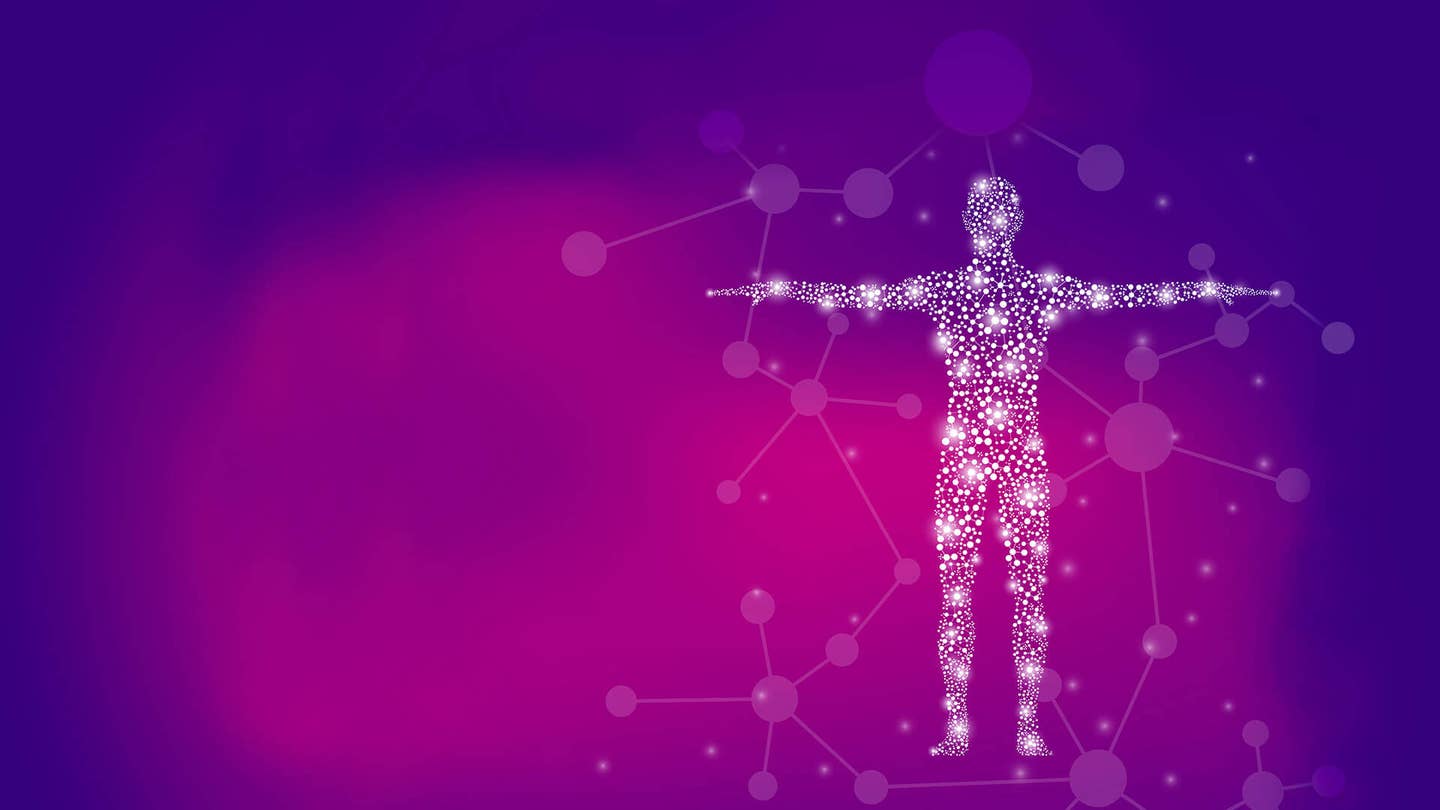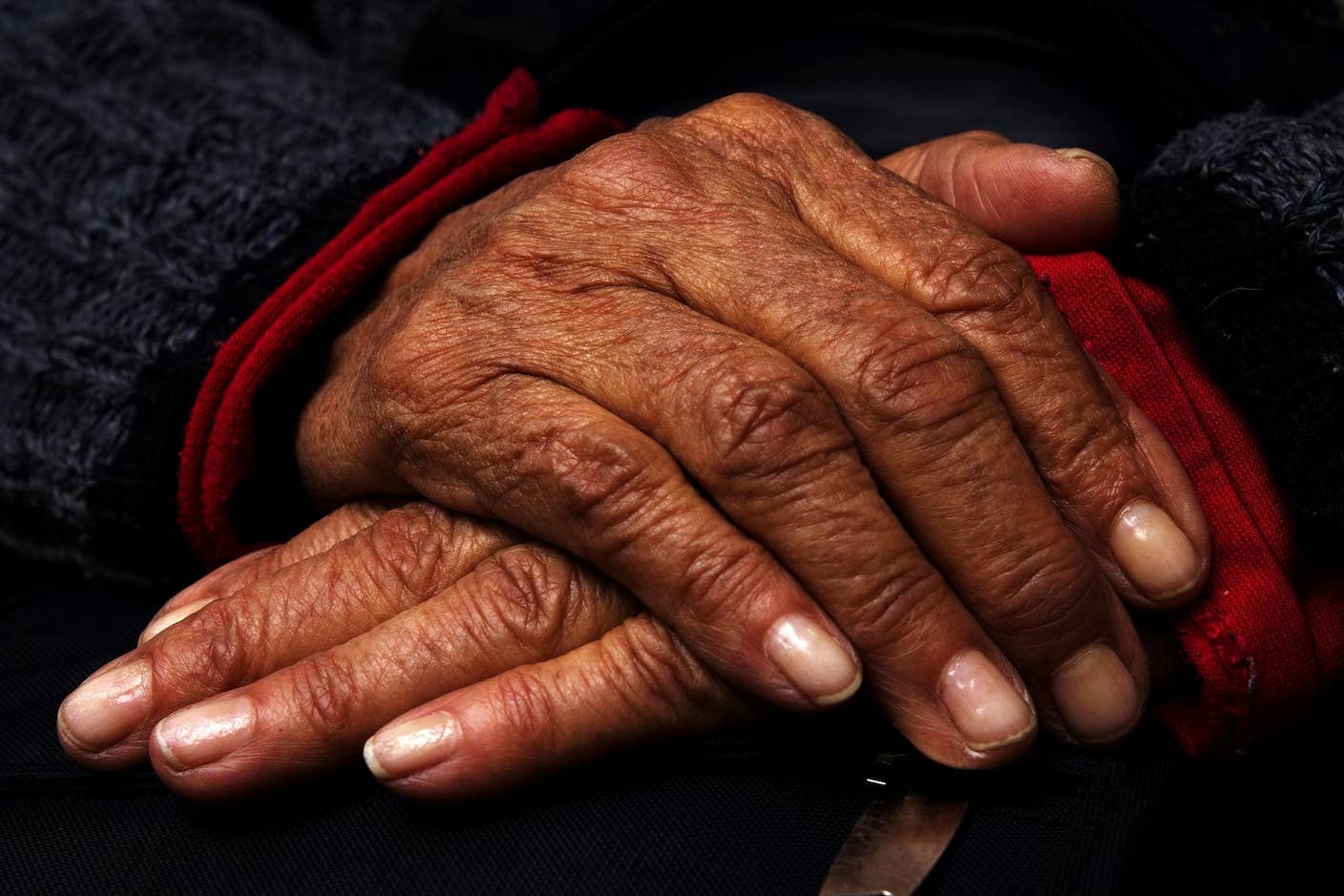Massive National Health Study Looks to Tailor Your Diet to Your Genetic Makeup

Share
Like taxes and death, nutrition is something we can’t escape. Eating should be easy. Yet it’s also massively confusing, prone to misinformation, and utterly personal.
Take competitive eaters who regularly chow down on thousands of calories without gaining weight. Compare them to people who pack on pounds just looking at a French fry. Or compare people who can tolerate any food to those who are sensitive or allergic to entire food groups. Or people who thrive on a high-fat diet like keto, to unfortunate souls who—with the same diet—need to stay close to the bathroom.
You get the idea: no one diet fits all. Yet nutrition science has long relied on averages to make dietary recommendations. From the 80s “fat is bad” paradigm to today’s “sugar is horrible” trend, it’s always been easy to vilify one food component, without digging into how each of us interact with the foodstuff we eat.
Now, thanks to a massive new project led by the National Institutes of Health (NIH), nutrition science is about to get the precision treatment. With a price tag of $156 million, the five-year-long study will examine how 10,000 Americans process food. The program, “Nutrition for Precision Health,” isn’t pulling punches. Each person will be given a highly controlled diet to reduce variability. They’ll then be thoroughly monitored for everything from blood sugar levels to their genes, proteins, and gut microbiome composition. Using the massive dataset, the program can then develop AI-based algorithms to predict individual responses to foods and diets.
If successful, we may soon have a scientifically-proven way of optimizing our diet and health based on our genes and gut microbes. While the culinary astronauts among us may cringe at the idea, for those with metabolic disorders or food intolerances, the algorithms are a powerful tool to aid nutritionists in prescribing diets to those who seek help.
Fuzzy Science
Nutrition science has had a bit of a “fuzzy” reputation. But it’s not through any fault of its own. The field faces two major unenviable challenges: one, the results are the average of entire study populations, and two, humans hate sticking to a strict diet for long enough to get consistent results. Ever tried a 14-day diet? Now imagine doing it for five years.
As Paul Coates, vice president of the American Society of Nutrition puts it, we’re all “free-range eaters,” which mucks up the resulting data.
That’s not to say classic nutrition science hasn’t had major wins. Take the Framingham Heart Study, which launched in 1948 with over 5,000 people to better understand heart and blood vessel health. The study was a first population-level triumph in linking diet to cardiovascular diseases, which remains one of the top killers today.
But to NIH’s director Dr. Francis Collins, it’s high time to bring nutrition science into the 21st century. In May 2020, the agency released a 10-year plan to dig into the nitty-gritty of nutrition, tackling the “what, when, why, and how to eat” to optimize health and reduce chronic health plagues such as diabetes, obesity, and heart disease.
It’s looking to be a wild ride. For example, the ambitious effort doesn’t just focus on the gut. Thanks to new research showing intimate connection between the gut and the brain—dubbed the gut-brain connection—the plan also embraces neuroscience as a component. Given the link between longevity and diet, it’ll also study the role of nutrition across our lifespans, or even how to use food as medicine.
And underlying all these fundamental questions? Personalization: how each of us responds to the food we eat.
All for One and One for All
The new program will be housed under the NIH’s flagship health project, All of Us. The research program aims to recruit one million people under its banner to build a Google Earth-style database of biology, health, lifestyle, and disease. The key is individuality: forget average treatments, personalization is the future.
To Dr. Griffin Rodgers, director of the National Institute of Diabetes and Digestive and Kidney Diseases (NIDKK), now is the perfect time to explore precision nutrition. In a presentation last September, he laid out why. We’re beginning to understand how the microbiome influences health. We can rapidly perform multi-omics studies—that is, look at a person’s whole system of genes, proteins, and metabolism. AI and machine learning make it easier to analyze these massive datasets. Finally, digital health tech, offered through smartphones or smartwatches, makes everyday health tracking simple and affordable.
Be Part of the Future
Sign up to receive top stories about groundbreaking technologies and visionary thinkers from SingularityHub.


The project is planned in three stages. Roughly 10,000 volunteers from All of Us will wear various monitors—similar to Fitbits—to track their usual diets, physical activity, and blood sugar levels, creating a baseline. In the second stage, a subset of participants will regularly visit a clinic. There, they’ll be given a controlled, specific meal, and be monitored for a series of biomarkers such as how their blood sugar levels change.
Another subset of volunteers will be given three different types of diets, one following another with a “washout” period—a break—in between. The prepared study foods will be eaten at home, so the participants can go about their daily lives.
Finally, up to 1,000 volunteers will stay at a clinic for three two-week-long holidays. Here, their three meals will be strictly controlled, and outside food not allowed. While seemingly harsh, going from free range to controlled is the gold standard for nutrition science, because it weeds out other variables.
While on the diet, all three groups will undergo a series of clinical tests, ranging from genetics and microbiome composition to blood sugar levels, metabolism, and urine. Psychology and behavior measures will also be assessed. Further on the docket are socioeconomic factors, such as zip code.
With these comprehensive measures, “we are removing a lot of that ‘noise’ that we had for years, created by the factors that we were not measuring before,” said Dr. José Ordovás, a nutrition scientist at Tufts University.
As the study gathers data, on the back end, software engineers will begin building an infrastructure for storing, organizing, and searching the datasets. This library of data is then passed on to AI scientists to create models and algorithms that predict a person’s individual response to a diet. Finally, another five-year period will validate those models in clinical trials.
It’s not the first time a study has linked precision nutrition with AI. In 2015, an Israeli study of 800 people monitored their blood sugar levels and microbiome to parse out how individuals respond to different types of sugar intake. Using machine learning, the study built a software program to predict diets best suited for someone who is diabetic or hoping to lose weight.
But Nutrition for Precision Health is larger and far more sweeping than anything previously attempted. For now, the program is still at the planning stage, with a full launch expected in early 2023.
To Rodgers, the study isn’t just about generating “a wealth of data to fuel discovery science for years to come.” The resulting tools, methods, and paradigm shift will have “the potential to truly transform the field of nutrition science,” he said.
Image Credit: bestbrk / Shutterstock.com
Dr. Shelly Xuelai Fan is a neuroscientist-turned-science-writer. She's fascinated with research about the brain, AI, longevity, biotech, and especially their intersection. As a digital nomad, she enjoys exploring new cultures, local foods, and the great outdoors.
Related Articles

This Brain Pattern Could Signal the Moment Consciousness Slips Away

Vast ‘Blobs’ of Rock Have Stabilized Earth’s Magnetic Field for Hundreds of Millions of Years

Your Genes Determine How Long You’ll Live Far More Than Previously Thought
What we’re reading